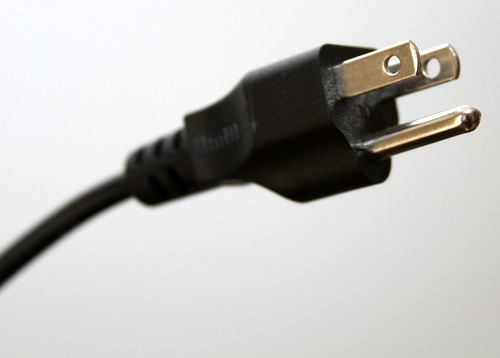Category Archives for Work Life Balance Tips
Ready to Face (and Conquer) the Not So Scary Truth About What Keeps You Stuck?
 Do you go through life afraid to take risks and go after what you really want? Do you feel stuck in the same-old-same-old details of your life, unsure of where to go from here or convinced that no matter what you do, it won’t turn out the way you want so why even try?
Do you go through life afraid to take risks and go after what you really want? Do you feel stuck in the same-old-same-old details of your life, unsure of where to go from here or convinced that no matter what you do, it won’t turn out the way you want so why even try?
You are not alone! Many of us can get swept up in doing things the way we’ve always done them out of fear. Fear of the unknown. Fear of failure. Fear of making mistakes. What we forget is that fear isn’t necessarily a bad thing. It is just a signal. What we choose to do with that signal is where we can get in trouble.
If you’re ready to stop letting fear run your life and start going after what you want (and deserve), please join me for the October FREE Teleseminar… “What Haunts You: Facing the (Not So) Scary Truth About What Keeps You Stuck.”
In this teleseminar, I’ll cover:
- Why Fear Gets a Bad Wrap
- What Really Keeps You Stuck
- How to Unstick Yourself and Get Back to the Business of Living Your Life
Don’t delay. Sign up today. The live call is coming soon. But don’t worry, if you can’t attend live, you can still sign up and get access to the recording. Simply go to the REGISTRATION page and enter your name and email to get signed up.
Embrace Your Mistake
 “Mistakes are a part of being human. Appreciate your mistakes for what they are: precious life lessons that can only be learned the hard way.” ~ Al Franken
“Mistakes are a part of being human. Appreciate your mistakes for what they are: precious life lessons that can only be learned the hard way.” ~ Al Franken
Have you ever messed up? Done something wrong? Made a mistake, big or small, that affected not only you, but those around you?
Sure, we all have. But I want to take a moment to encourage you to look at mistakes a little differently than you may have before.
We all can probably get in touch with that feeling of making a mistake from when we were young children. That feeling of being in trouble when we know we’ve been caught or found out. I don’t know anyone who likes that feeling. Some of us learned to fess up and take the punishment. Others learned to lie about it and try to avoid consequences at all costs. Either way, there’s still a mistake that’s been made, and there will be a cost.
What is a mistake, anyway? According to dictionary.com, a mistake is:
- an error in action, calculation, opinion, or judgment caused by poor reasoning, carelessness, insufficient knowledge, etc.
- a misunderstanding or misconception.
As children, we’re bound to make mistakes based on poor judgment and reasoning, carelessness, insufficient knowledge and wisdom. It’s inevitable. Kids’ brains aren’t matured enough to know and do better. We make errors, we learn, we move on.
But somewhere along the way, as we grow into adults, we somehow get conditioned to believe that mistakes are unacceptable. We expect perfection instantly and get really impatient and judgmental of ourselves (and sometimes others) when that doesn’t happen. I’m not exactly sure what it is that makes us believe that with age comes infinite wisdom. Just because we have life experience in some areas doesn’t mean we know (or will ever know) everything there is to know about everything and never make errors or have misunderstanding ever again. One only need look at the news about foreign affairs in any part of the world (or go to any family gathering) to realize that misunderstandings and misconceptions are all around us.
I’d like us to think of mistakes in terms of opportunities. If mistakes are made by errors in judgment, then there’s an opportunity to learn about the consequences of our judgment. If we make mistakes based on insufficient knowledge, then there’s an opportunity to get educated. If mistakes come about by misunderstandings or misconceptions, then there’s an opportunity to gain some clarity about another point of view (not that you will necessarily agree with it).
The word MISTAKE is ingrained in us as this horrible, unforgiveable thing. But there is not one person alive who hasn’t made a mistake or will never make another mistake again. It is part of the learning process (aka life). If we can look at mistakes the way they are defined, as errors (which are things to be corrected) and misunderstandings (which are things to be understood), doesn’t that seem like a more gentle, helpful perspective?
Today, I invite you to embrace your mistakes, for they are your teachers and provide opportunities for you to learn and grow.
Photo: My mistakes have a certain logic © by theihno
Getting Unplugged: The Gift of Taking a Break from Technology
 I love technology. I love how it allows me to create things I wouldn’t otherwise be able to do. How it inspires, influences, and changes things for the better. But with every good thing, every good benefit, there comes a price.
I love technology. I love how it allows me to create things I wouldn’t otherwise be able to do. How it inspires, influences, and changes things for the better. But with every good thing, every good benefit, there comes a price.
That price peeks out every time I cringe when the phone rings, or an alert comes up telling me I have a new email and interrupts my train of thought, or my computer freezes and loses a few hours worth of work. Technology can be a good thing. But it can also be a distraction and a burden.
Recently I had the opportunity to step away from technology. I was on vacation and while I had my laptop with me, I wasn’t able to do much because it is so ancient and has limitations that prevent me from doing much other than word processing. It was a little uncomfortable at first – withdrawals kicking in of not being able to check email – but I quickly was able to adjust. And you know what? I survived. Instead of checking email 50+ times a day, I sat in silence, let my mind slow down, watched what was going on around me, was present with friends and with nature.
Now back into the full swing of my life, I am remembering how good it felt to have some freedom from technology and I’m better able to step away. I came back to find only a handful of emails that were truly important, and nothing that needed any immediate attention.
How has technology affected your life – both good and bad? What would life be like if you stepped away from technology for a month, a week, a day, or even a couple hours? Might be worth a try.
I’d love to hear about your break from technology. Leave a comment below.
Photo: Plug © by Samuel M. Livingston
Top 15 Non-Work Things To Do This Labor Day
 If you’re anything like me, you have a to-do list a mile long – filled with a mixture of things you must do, things you need to do, and things you want to do. The things I want to do tend to get pushed further and further down the list to make room for all that really needs to get done. And I must constantly keep the list in check to ensure I don’t always end up on the bottom of my to-do list.
If you’re anything like me, you have a to-do list a mile long – filled with a mixture of things you must do, things you need to do, and things you want to do. The things I want to do tend to get pushed further and further down the list to make room for all that really needs to get done. And I must constantly keep the list in check to ensure I don’t always end up on the bottom of my to-do list.
This Labor Day, I challenge you to take some time out and really put yourself at the top of your priority list. Despite what kind of work you do to pay your bills, take this opportunity to step away from anything work-related to celebrate all that you do during normal business hours (and beyond if you tend, like I do, to work a non-traditional work week).
Here’s some ideas to get you started on what you can do to celebrate you this Labor Day:
- Sleep in
- Dust off a novel you’ve been meaning to read and READ IT
- Unplug yourself from your computer and phones
- Take a day trip to enjoy your local nature (water, forest, desert, dunes, mountains, etc.)
- Finish a project that you enjoy
- Spend the day with a good friend who will help take your mind off work
- Watch a movie
- Take a walk, hike, or bike ride
- Meditate
- Listen to some music to help you relax (or re-energize)
- Prepare a delicious, nutritious meal
- Play a board game with friends or family
- Go swimming
- Do something crafty (if that’s your thing)
- Have a picnic in your back yard or at a local park
Can you think of other ways to celebrate you and all the hard work you do? Wonderful. Now go do them and enjoy a day off!
Photo: Picnic © by KFoodaddict
Book Review: Change Your Thoughts, Change Your Life: Living the Wisdom of the Tao by Wayne Dyer
For over two decades, I’ve followed the work of Dr. Wayne Dyer, author and speaker. His work focuses on self-improvement, specifically on how to shift your perspective and thoughts to feel more centered, balanced, and happy. For sure, his work has helped shape not only who I am personally but my calling to do this same type of work with clients.
In his book, Change Your Thoughts – Change Your Life: Living the Wisdom of the Tao, Dyer explores the ancient teachings of Lao-tzu, who dictated 81 verses of text that provide guidance on living a balanced and moral life. Dr. Dyer spent a year living with each of the 81 verses, exploring them in his own life and writing about them.
The book holds 81 chapters, each devoted to one of the teachings. Dyer provides an interpretation or Lao-tzu’s teachings as well as practical advice on how to practice each of the teachings. He encourages readers to sit with no more than one chapter a day to fully take in the words and suggestions for putting that lesson into practice.
Each chapter touts a wonderful life lesson, a nugget of wisdom passed down through the ages. Examples of the lessons in this book include living:
- Creatively
- With Inner Conviction
- With Constancy
- Without Attachment
- From Greatness
- Calmly
- In Obscurity
- Beyond Appearances
- Beyond Judgment
- By Letting Go
- By Being Here Now
- By Bending
- Without Resentments
The advice Dyer provides includes tips like:
- Being silent and listening to your thoughts
- Trusting yourself
- Being aware of what is going on around you
- Practicing forgiveness
- Learning from the wisdom of children
If ever there was a “how-to” manual for how to live, this is it. I highly recommend this book as part of any good self-help collection.
Life Interrupted: What To Do When Things Don’t Go As Planned
If you want to make God laugh, make plans. I don’t know when I first heard that or who said it, but I sure do agree with it these days. It’s hard to remember the last time I had a day go even close to what I had planned. And believe me, I am a planner.
From to-do lists, to calendars, action plans, marketing plans, business plans, project plans…I love my lists. Give me a goal, and I can break it down for you step by step with tasks and deadlines. In fact, I can remember doing that in high school, scheduling my life in 15 minute increments in my day planner. I remember my sophomore English teacher being quite impressed by it. And it was fairly easy to manage when all I had on my plate was high school, a part-time retail job, and my family.
But somewhere along the way, life got a bit more complicated. Enter college, a full-time job, and part-time jobs on top of it, boyfriends, graduation, more jobs, a marriage, a baby, a divorce, graduate school, re-careering, etc. The lists got longer and the days got shorter.
What I’ve learned is that while planning may be an important (and helpful) part of life, there must also be space for other things that come up. Because there’s no way to plan for everything, every situation, every scenario. Once I started to adopt this new way of thinking, I realized it wasn’t the planning that had helped me all along as much as it was the feeling of being in control and prepared.
How to be in Control…First I must say that control is an illusion. We want control when we think we don’t have it. And the thought of being out of control can drive otherwise rational, sane people over the edge. Control is really about having our expectations met. It’s a nice thing, but not always going to happen. The only thing we really have control over is ourselves – our thoughts and behaviors. Most of the time, it seems to me that people who talk about control are upset because people around them aren’t meeting their expectations. That’s not a fun situation, but it happens…all the time. The more we can realize and accept that we cannot control others (whether our kids, spouses, partners, friends, bosses, etc.), and that we can only control ourselves, the easier things seem to get.
How to be Prepared…Being prepared is an entirely different animal. It is possible to be prepared for any situation that comes your way. How, you ask? By trusting yourself. Trust that you can handle whatever life throws at you. Trust that you will make the best decision you can with what resources you have at your disposal. Trust that you (or someone you know) can help you find answers and solutions. And trust that everything will be okay, regardless of how it turns out.
I planned to get some work done yesterday, but instead was faced with an intense family situation that stirred up a lot of emotions. I rearranged my planned schedule. I trusted myself to know what was best for me. I allowed myself space and time to feel, vent, breathe, and then get a bare minimum of work done.
Remember life happens in spite of your plans. How will you handle the next interruption?
Photo: Stop Hammertime © by Rich Anderson


